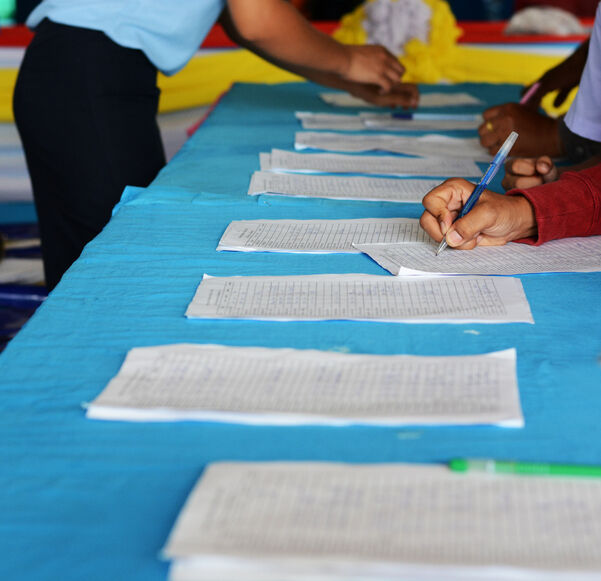The groups trying to force a referendum on six bills passed by the state Legislature this year are rounding into the final stretch of their signature-gathering efforts.
The coalition, calling itself Arizona Deserves Better, needs to collect about 119,000 valid signatures to force referenda on three bills related to tax cuts and three election-law changes.
“We’re shooting for 180,000 to 200,000 each. We’re on pace for that,” said Joe Thomas, president of the Arizona Education Association.
The signatures need to be turned in by Sept. 28, 90 days after the legislative session ended.
Supporters are running what they’re calling a Petition Palooza on Saturday. They’ll be collecting signatures at Pima County Democratic Party headquarters, 4639 E. First St., from 8 a.m. to 5 p.m., and at the Mountain Vista Unitarian Universalist Church, 3235 W. Orange Grove Road, from 7:30 a.m. to 3 p.m.
The bills that they are trying to put on the ballot are:
SB 1828, which lowers the tax bracket on people who make more than $500,000 a year to 1%, offsetting some of the education surtax passed by voters in November.
SB 1827, which lowers the state tax rates for people whose state income tax rate tops 4.5% because of the education surtax.
SB 1783, which exempts business income reported on individual income tax returns (Chapter S) from the education surtax.
SB 1485, which renames the Permanent Early Voting List and purges people who don’t vote periodically.
HB 2569, which stops elections officials from receiving private grants to help them run elections or register voters.
SB 1819, which dictates a variety of election-related measures generally opposed by Democrats.
If the coalition turns in enough valid signatures, the laws would be put on hold until the November 2022 election, at which point voters would either ratify the Legislature’s actions or reject them.
New candidate in LD10
A new Democratic candidate has joined the race for the open Legislative District 10 seats.
Charlie Verdin has filed to be a candidate, joining one Democrat and one Republican in running for the seats now occupied by state representatives Stephanie Stahl-Hamilton and Domingo DeGrazia, both Democrats.
Stahl-Hamilton is planning to run for the LD10 Senate seat vacated by Kirsten Engel, who resigned last week to run for Congress. DeGrazia is not running for reelection.
Verdin, a founder and general manager of the video-game merchandise business FanGamer, previously ran for the Democratic nomination for U.S. House in Congressional District 2.
The other candidates who have filed to run for state House in LD 10 are Democrat Morgan Abraham and Republican Rachel Jones. Republican Sherrylyn Young has filed to run for state Senate.
All the legislative districts are subject to geographic and demographic change as the Arizona Independent Redistricting Commission goes about drawing new boundary lines.
Senate candidate blasts mail-in voting
U.S. Senate candidate Blake Masters, a Republican from Tucson, got involved in the California recall election against Gov. Gavin Newsom, and even used it this week to criticize mail-in voting, the main way Arizona voters cast ballots.
Masters grew up in Tucson but left to attend Stanford University and went to work for tech billionaire Peter Thiel. He and his family moved back in 2018.
On Sept. 8, he tweeted pictures of himself at a pro-recall rally in California, and on Sept. 14 he put out a press release denouncing what he said were irregularities in the California election, which the anti-recall side won easily.
Later that day, in a tweet about the California election, Masters said: “Mass mail-in voting for mere convenience is insane and we should not tolerate it.”
It turns out, mass mail-in voting for mere convenience has been the principal way Arizonans cast ballots for years. Arizona first allowed absentee voting for any reason in 1991, then in 1997 changed the law to refer to mail-in voting as “early” rather than “absentee” voting.
In 2007, Arizona created the Permanent Early Voter List, which became the dominant form of voting, topping 80% in 2020, before being changed by the state Legislature this year.





